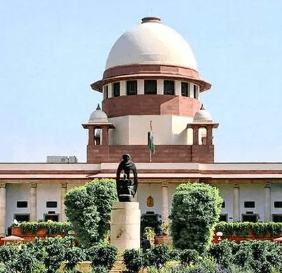Collegium Recommends names of Justice Dinesh Maheshwari and Justice Sanjiv Khanna for appointment as Judges of the Supreme Court
The Collegium headed by Chief Justice of India Ranjan Gogoi has recommended appointing Justice Dinesh Maheshwari and Justice Sanjiv Khanna as judges of the Supreme Court.
The collegium headed by Chief Justice of India Ranjan Gogoi also comprises four senior-most judges of Supreme Court which includes Justices A K Sikri, S A Bobde, N V Ramana and Arun Mishra.
Three Judges Case and Collegium System
The Constitution of India under Article 124 and Article 217 prescribes the procedure for the appointment of judges of Supreme Court and High Court respectively. The articles state that the judges would be appointed by the President in consultation with the Chief Justice and other judges of the Supreme Court and the High Courts as the President of India may deem necessary.
The Collegium system for appointment of Judges emerged out of the three rulings of the Supreme Court which are collectively referred to as the Three Judges Case.
In the first judge case, S. P. Gupta vs Union of India, the Supreme Court had held that the word “consultation” in Article 124 and in Article 217 does not mean “concurrence” and the ultimate power would be vested with President.
In the Second judge case, Supreme Court Advocates-on-Record Association vs Union of India, the earlier judgment in the first judge case was overruled. It was said that in the event of a conflict between the President and the CJI with regard to appointments of Judges, the opinion of Chief Justice of India would have primacy, also would be determinative in the matter. It was in the second judge case the collegium system was instituted by the Supreme Court. For the appointment of judges of SC, the collegium would consist of CJI and two senior most judges and for the appointment of judges of HC, the collegium would consist of Chief justice of High court along with two senior-most judges of the High Court.
In the Third judge case under the special reference to the Supreme Court by the President of India, the Court upholding the judgment of the Second Judge expanded the collegium to include four senior-most judges along with the chief justice.
NJAC
The Constitution (Ninety-Ninth Amendment) Act, 2014 sought to replace the Collegium system with the National Judicial Appointments Commission (NJAC). But the Supreme Court declared the amendment act as unconstitutional with a majority 4-1 judgment. This has been now referred to as Fourth judge case.
Month: Current Affairs - January, 2019


